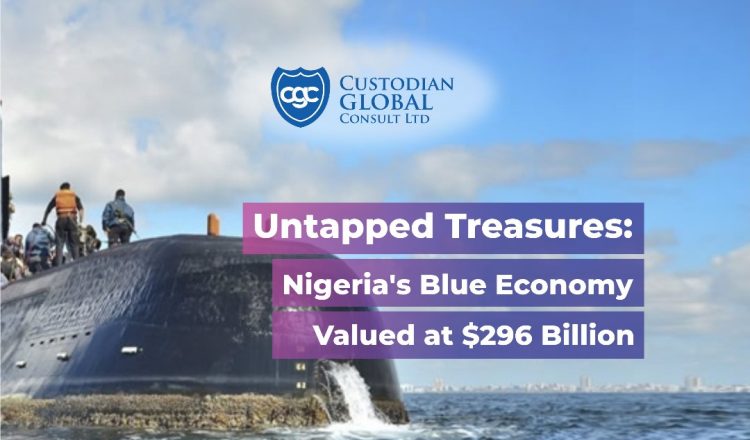.
In a strategic move aimed at unlocking the economic potential hidden within its vast coastal resources, Nigeria has set sail on a transformative journey into the Blue Economy. Spearheaded by President Bola Ahmed Tinubu, the establishment of the Ministry of Marine & Blue Economy, led by Chief Adegboyega Oyetola, has been lauded by many as a pivotal moment in the nation’s maritime history.
The concept of the Blue Economy, championed by Professor Gunter Pauli, gained prominence at the United Nations Conference of Parties 3 in 1994. Focused on sustainable use of ocean resources, it aligns with the United Nations Sustainable Development Goal 14, emphasizing the conservation and sustainable use of oceans for present and future generations.
Professor Pauli’s vision for an innovative economic model resonates with Nigeria’s current drive. His call for “what is better” rather than dwelling on what is good or bad becomes a guiding principle as Nigeria charts its course in maximizing its Blue Economy potential.
With a coastline stretching 853 kilometers, Nigeria’s maritime potential is staggering. The Africa Blue Economy Alliance estimates the country’s untapped Blue Economy potential at an astonishing $296 billion. Abundant marine resources, including fisheries, shipping, renewable energy, and mineral wealth, lie waiting to be harnessed.
Nigeria’s maritime industry has long been tethered to oil and gas. However, the establishment of the Ministry of Marine & Blue Economy signals a paradigm shift. The focus extends beyond traditional sectors to encompass industrial fishing, aquaculture, shipbuilding, repair, ownership, port development, seabed mining, offshore wind energy, and sustainable tourism.
Despite a coastline bordering the Atlantic Ocean, Nigeria remains a significant importer of fish. The Blue Economy offers an opportunity to revolutionize the industrial fishing sector and boost aquaculture. By addressing issues like outdated vessels and illegal fishing, Nigeria aims to reverse the tide, potentially creating millions of jobs and reducing the $70 million lost annually to illegal practices.
The global shipbuilding industry, valued at $167 billion in 2022, represents uncharted waters for Nigeria. Currently, the nation imports vessels worth $5.6 billion annually. The call to ban certain vessel imports by 2022 signals a commitment to develop local shipbuilding capabilities, creating jobs and stemming capital flight.
Lagos port handles over 90% of Nigeria’s import and export cargoes, prompting a call for urgent expansion and development of other ports. The Lekki Deep Sea Port, completed in 2022, is a shining example of Nigeria’s commitment to creating a network of modern ports, reducing congestion, and generating hundreds of thousands of jobs.
Nigeria’s seabed holds vast mineral resources, from oil and gas to valuable metals. The Blue Economy envisions the responsible exploration of these riches, supported by advancements in technology. Additionally, offshore wind energy in areas like Lagos, Ondo, and Delta presents a green energy opportunity, aligning with global efforts to reduce carbon footprints.
Amidst the excitement of potential economic growth, Nigeria pledges a commitment to the sustainable use of marine resources. With a history of oil spills impacting coastal communities, there’s a call for responsible practices, aligning with UN goals to prevent marine pollution and ensure the health of the ocean ecosystem.
As Nigeria unfurls its sails into the Blue Economy, the focus is not merely on economic gain but on responsible stewardship of its maritime heritage. The Ministry of Marine & Blue Economy, under Adegboyega Oyetola, stands at the helm, steering the nation toward a sustainable and prosperous maritime future. In this uncharted territory, Nigeria’s voyage into the Blue Economy, Nigerians expect, not just economic growth but a harmonious relationship with the marine environment, setting a course for a blue tomorrow.





